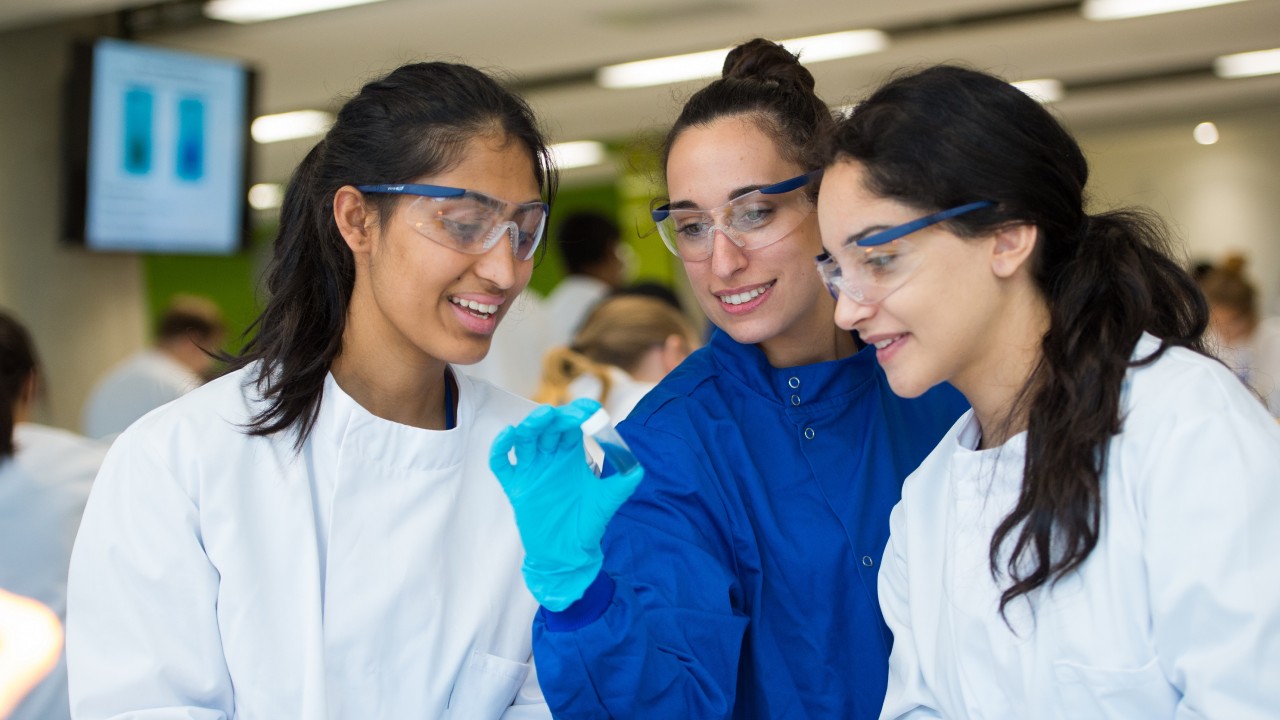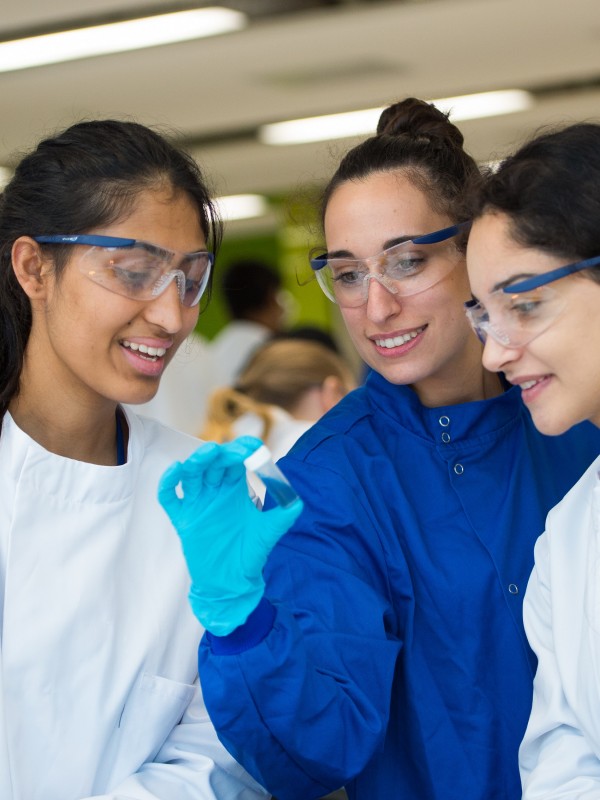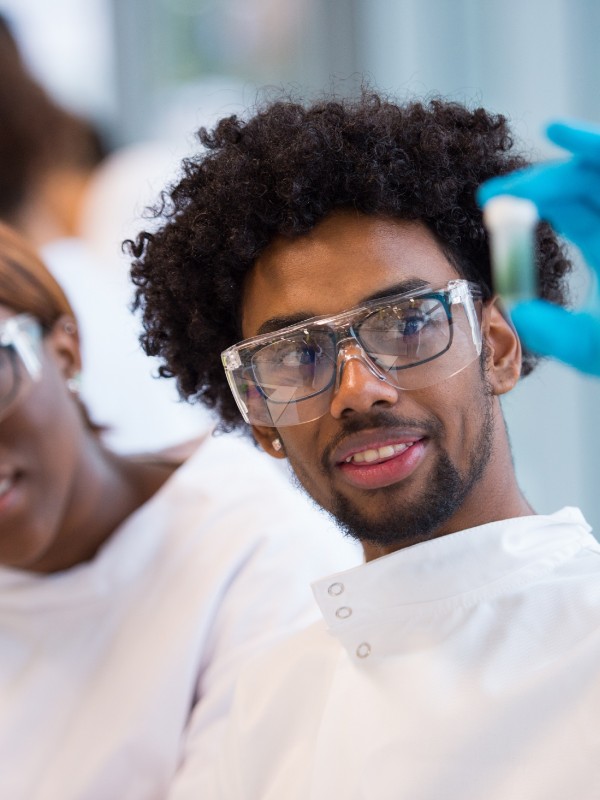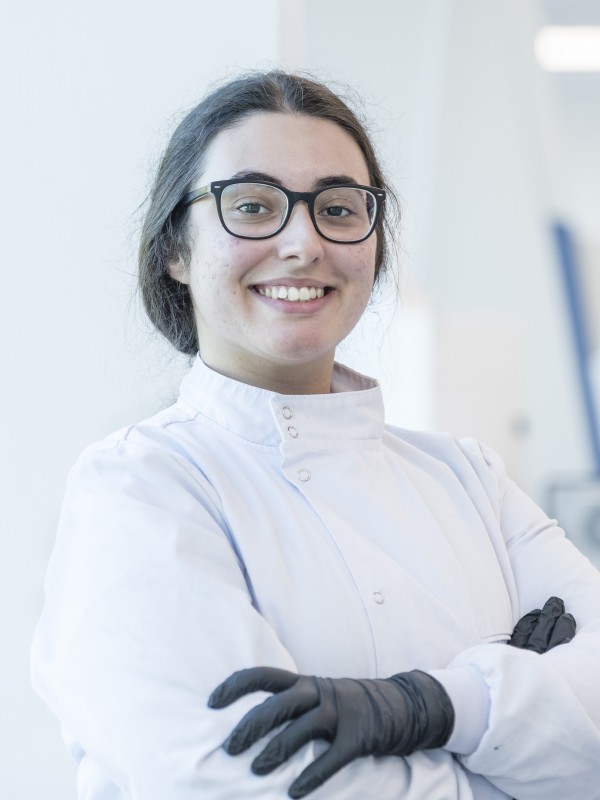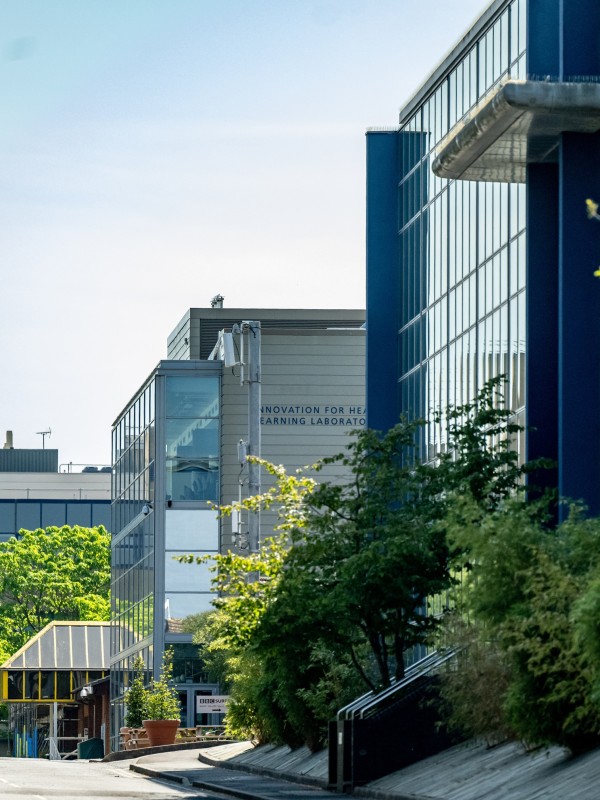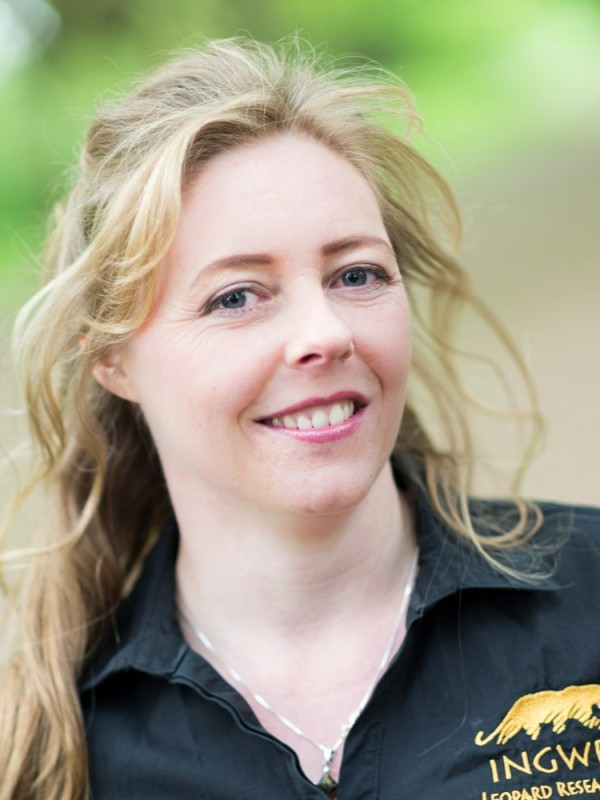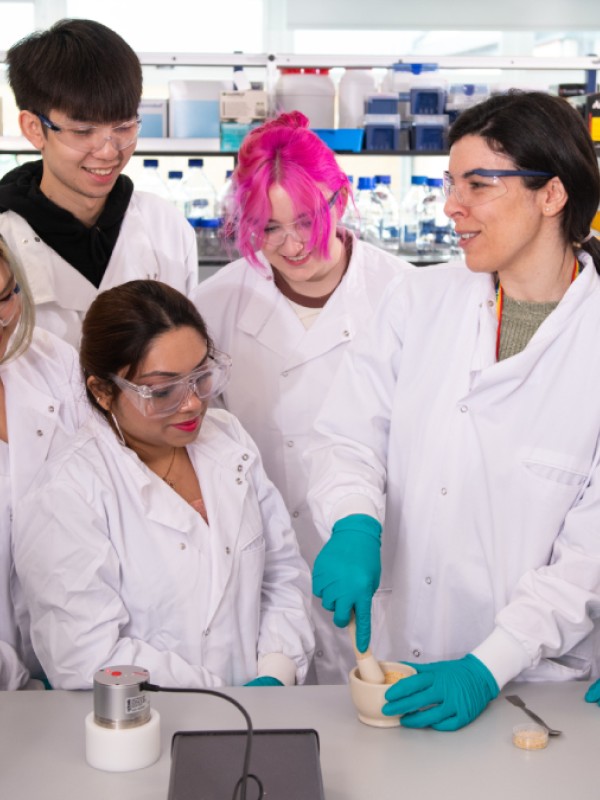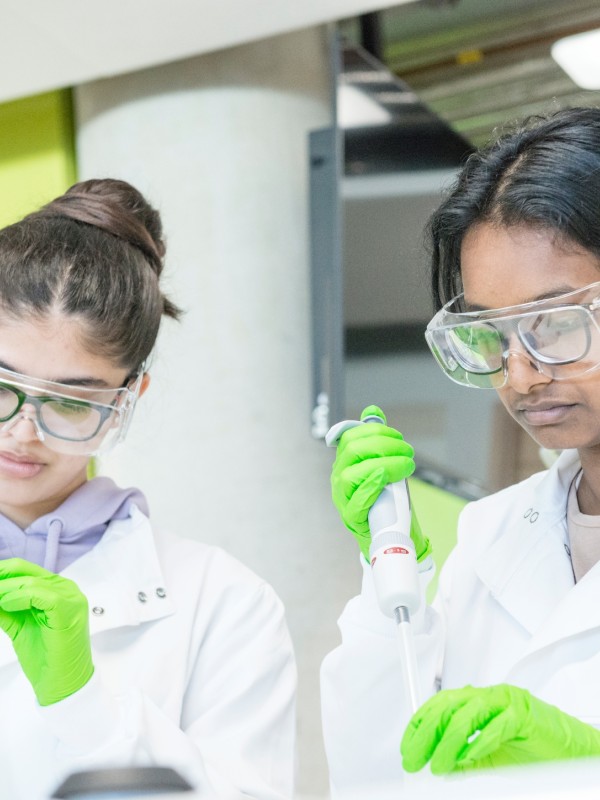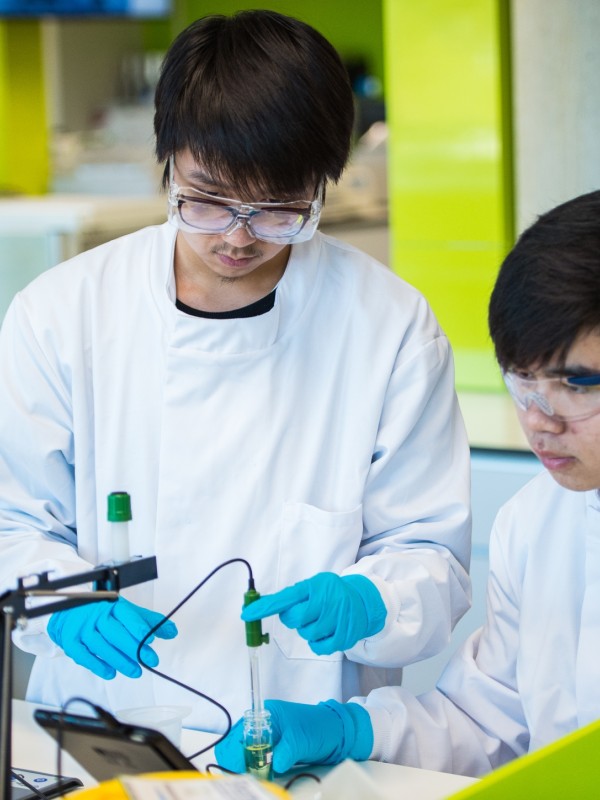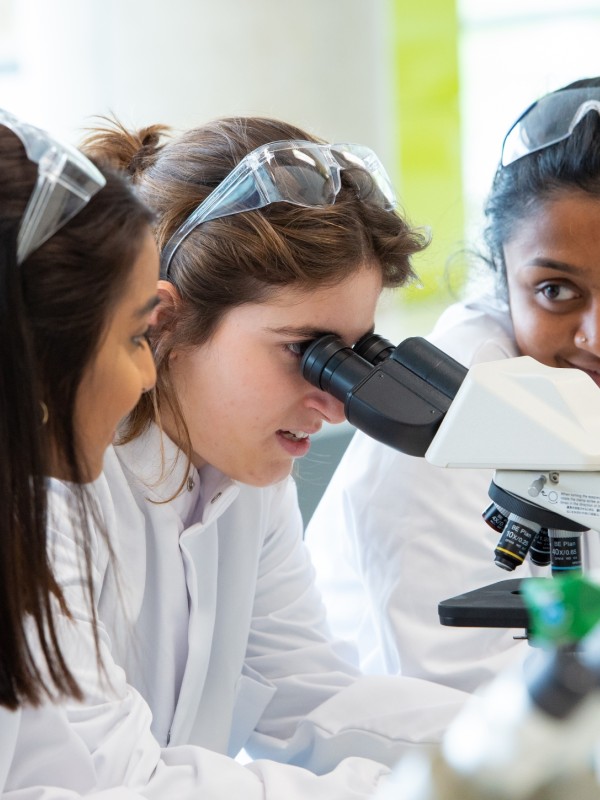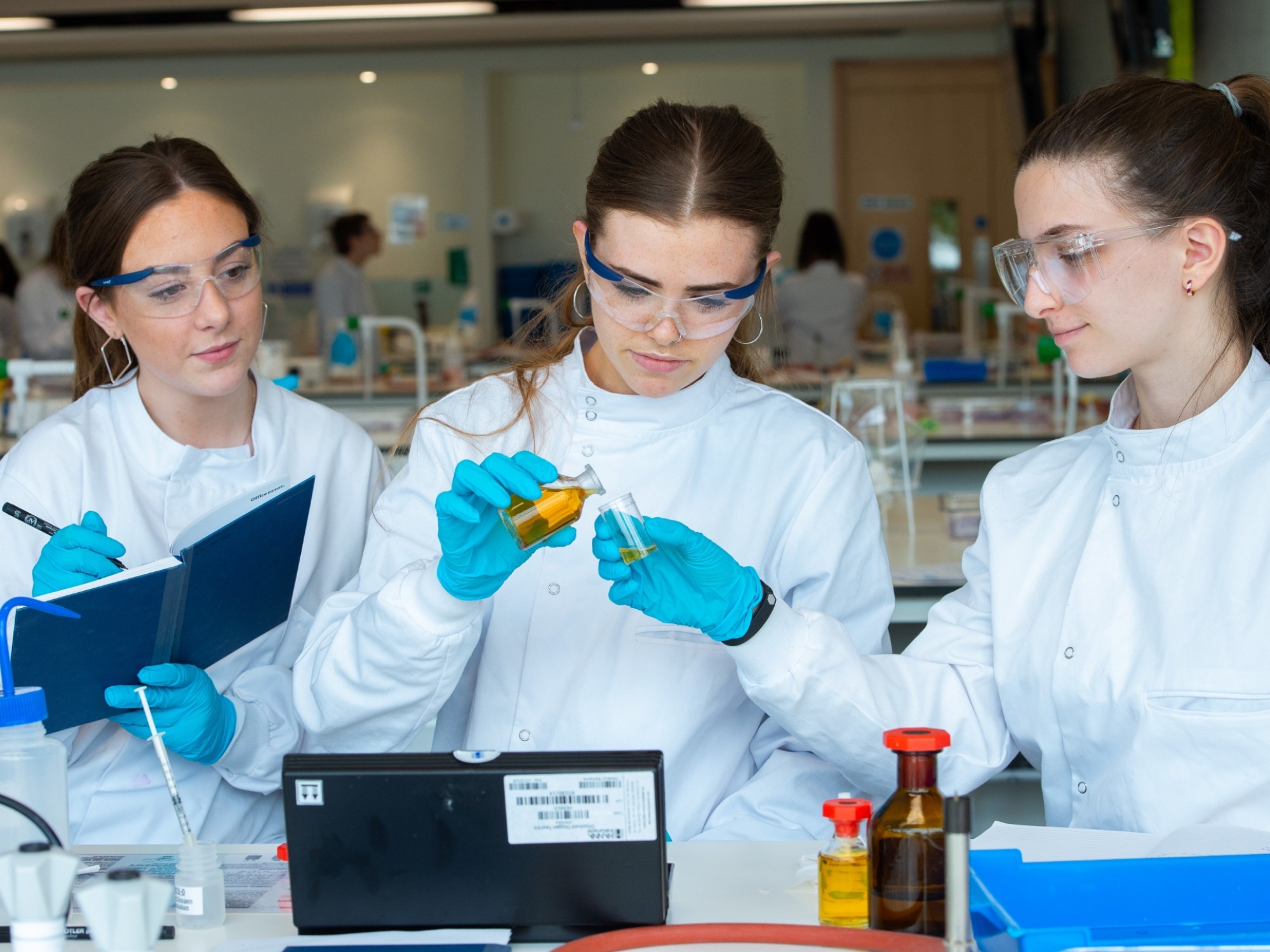
- Biological Sciences
BSc (Hons) — 2027 entry Biological Sciences
On our BSc Biological Sciences, you’ll investigate biological structure and function at various levels, from molecules to cells through to whole organisms, communities and ecosystems.
4,161+ people have created a bespoke digital prospectus
Why choose
this course?
- Access our £12.5 million Innovation for Health Learning Laboratory to acquire practical lab experience that is essential for a research career and valued by employers.
- Focus your studies on animal biology and ecology, cellular and molecular sciences, or infection and immunity as you progress through the course, or explore wider interests through a variety of optional modules.
- Develop your understanding of sustainability and how this underpins biological sciences, including the importance of biodiversity and how humans have impacted the environment.
- Take the opportunity to get industry-ready with our award-winning Professional Training placements, with a wide range of employers to choose from.
Statistics
2nd in the UK
Biosciences are ranked 2nd in the UK for overall student satisfaction* in the National Student Survey 2025
92%
Of our biosciences graduates are in employment or further study within 15 months of graduating (Graduate Outcomes 2025, HESA)
Top 15 in the UK
Biological sciences are ranked 15th in the UK by The Times and The Sunday Times Good University Guide 2026
*Measured by % positivity based on Q1-24 for all providers listed in the Guardian University Guide league tables.
Accreditation

What you will study
In the first year of our Biological Sciences course, you’ll study topics that are fundamental to biosciences, ensuring you have a solid foundation upon which to build the rest of your degree.
During your second year, you’ll have the option to focus your studies on either animal biology and ecology, cellular and molecular sciences, or infection and immunity. Alternatively, you can choose from a variety of broader modules including analytical biochemistry, cellular microbiology, and neuroscience.
In your third year, you’ll further your knowledge of your chosen specialism or broader study by exploring topics such as advanced pharmacology, genetics, and the impact of humans on the environment. You’ll also complete a research project, bringing together all the practical, analytical and presentation skills you’ve developed.
Professional recognition
BSc (Hons) - Royal Society of Biology
Accredited by the Royal Society of Biology for the purpose of meeting, in part, the academic and experience requirement of membership and Chartered Biologist (CBiol).
Fieldwork
If you choose to focus your studies on animal biology and ecology, you will have the opportunity to conduct fieldwork on campus and further afield. On campus, you will conduct wildlife observations through ecological sampling methods, including camera traps and tracking hedgehog activity. Your off-site visits may include the Tilgate Nature Centre, the Grant Museum of Zoology, the Hawk Conservancy Trust, and the Surrey Wildlife Trust.
Foundation year
If you don’t meet our entry requirements, you might still be able to apply for this degree with a Biosciences Foundation Year. This is an extra year of study to develop your skills and make it easier for you to get started at university. On successful completion of your foundation year, you’ll be ready to progress to the first year of your degree.
To see what modules you’ll be studying, refer to the foundation tab in the 'course structure' section.
The academic year is divided into two semesters of 15 weeks each. Each semester consists of a period of teaching, revision/directed learning and assessment.
The structure of our programmes follow clear educational aims that are tailored to each programme. These are all outlined in the programme specifications which include further details such as the learning outcomes.
- Biological Sciences BSc (Hons)
- Biological Sciences BSc (Hons) with placement
- Biological Sciences BSc (Hons) with foundation year
- Biological Sciences BSc (Hons) with foundation year and placement
Please note: The full module listing for the optional Professional Training placement part of your course is available in the relevant programme specification.
Modules
Modules listed are indicative, reflecting the information available at the time of publication. Modules are subject to teaching availability, student demand and/or class size caps.
The University operates a credit framework for all taught programmes based on a 15-credit tariff.
Course options
Year 1 - BSc (Hons)
Semester 1
Compulsory
This module introduces students to the structures within a cell and their functions, including an understanding of the processes by which cells divide and die. The module then considers how cell structure and function can be adapted to specialise cells for particular purposes, and begins to consider how different types of cell are able to interact with one another and their environment in order to form higher order structures such as tissues and organs. Overarching these themes are four practical classes which illustrate the way in which cells and tissues can be studied.
View full module detailsThe purpose of this module is to introduce students to microorganisms, to the main cellular processes they perform and to how their activities affect humans and the environment. The students learn about microorganisms that cause disease as well as those who have properties we exploit for the benefit of society. Finally through laboratory practical exercises, the students learn and practice a range of basic microbiological techniques, which are essential for the cultivation and study of microorganisms. This module provides students with key skills and a basic broad knowledge of microbiology; a fundamental discipline required for future endeavors in the fields of infectious disease, biotechnology, biomedical science, biological science and other medically-related fields.
View full module detailsThis module aims to begin the students on a journey to facilitate the communication and passion for their subject, enabling them to develop and refine communication skills for further study. The students are guided through the development of key employability skills such as literature querying, critical reading and referencing, towards the discovery of a range of highly of high profile topic for their own research. Working in groups, students choose a topic which constitute the focus of their assessment, and learn to leverage on team work and personal resilience. Through the production of a group presentation and an individual summary, students develop important competences in the science communication field which strengthen their employability and academic proficiency.
View full module detailsSemester 2
Compulsory
This module aims to introduce students from all backgrounds to the principles of regulation of homeostasis. It provides a foundational knowledge to which principles can be applied in the control of several model systems to maintain homeostasis. The content builds upon content from Cell Biology and Biochemistry in semester 1 of level 4 and this essential knowledge is utilised in multiple modules at levels 5 and 6. Students will develop their practical skills in a number of scenarios, including exercise physiology, use of digital technologies to determine and monitor physiological outputs relating to model systems covered in the content. Laboratory skills are further developed from semester 1, data analysis and use of graphing software is cemented using lab derived data.
View full module detailsThe purpose of this module is to give a broad introduction to the essential concepts of molecular biology and genetics that are critical to any undergraduate programme in biosciences. We will cover the central dogma of biology: how information is passed from DNA to RNA to protein, and how it is inherited throughout generations. We will examine how genomes are organized and the structure of a gene, initially focusing on prokaryotes. We will discuss the details of DNA replication, transcription and translation and examine some of the key concepts in gene regulation. Students will also be introduced to laboratory and bioinformatic techniques essential for the study of molecular biology. They will also hone their skills in scientific writing through the production of a laboratory report and short essay.
View full module detailsUnderstanding the principles of evolution is essential for the study of biosciences. This module will embed an appreciation of why organisms look, behave and interact with others in the way they do. Students will study the central principles that have led to the diversity of life on Earth today. We will explore the process of natural selection including how the theory was developed and the evidence that supports it, as well as other forces responsible for evolutionary processes. We will study a range of examples including how genomes evolve, how bacteria become resistant to antibiotics, coevolution and how humans evolved to be as we are today. Students will use analytical tools in evolutionary biology research to complete a hands-on laboratory practical. This module lays the foundations for building knowledge about the general principles of evolution and the evolutionary mechanisms of adaptation, which you will apply in the second year to study animal anatomy and physiology (BMS2062), their role in ecosystems (BMS2070), and the development of microbial communities and antibiotic resistance (BMS2044). Additionally, in the final year, you will apply these principles to animal diversity (BMS3095) and animal behavior (BMS3096).
View full module detailsSemester 1 & 2
Compulsory
This module aims to introduce students from all backgrounds to the biological molecules that are essential to life. It provides a foundational knowledge of their structures and functions alongside when, where and how they are generated and broken down. The content builds up alongside content from Cell Biology and Physiology modules at this level to help you understand how these can be utilised at a cellular and organismal level and the conditions under which they are regulated. This provides an essential base upon which knowledge is utilised in multiple modules at levels 5 and 6. You will develop your awareness of the need for safety procedures, equipment and organisation in the laboratory, alongside the equipment that is needed to determine how processes in the module content occur and what conditions will affect these. You will learn to analyse data using appropriate software including a basic level of computer coding. Laboratory skills are build up throughout the module across both semesters, supporting you to become more independent, plan your experiments and be critical of your work and results, reflecting on how the results may change with refinements to the competency and type of experimental methods.
View full module detailsOptional modules for Year 1 - FHEQ Level 4
N/A
Year 2 - BSc (Hons)
Semester 1
Compulsory
This Molecular biology/genetics module builds up on its first-year sister module BMS1047. The key difference from BMS1047 is that it focusses on eukaryotic molecular biology and techniques to evaluate various molecular biology processes, including more genome-wide aspects, and the significance of molecular biology mechanisms in the real world, for e.g., in cancer. Another key difference is that this module covers molecular biology in greater depth, in particular the regulatory aspects of molecular biology. Overall, you will develop oral and written communication skills in molecular biology and genetics and will be able to appreciate the differences between the eukaryotic and prokaryotic molecular systems. Lectures are covered in a block of the following six themes. Advanced human genetics/genomics à The lectures will cover the human genome, natural genetics variations, sequencing genes and genomes, the genotype-phenotype map to include Mendelian genetics/genetic diseases, the transmission of information, and the concept of recombination. Eukaryotic DNA replication à Packaging of DNA, its organization on chromosomes and alignment with the cell cycle (telomeres, crossing over/recombinant). Enzymes needed for DNA replication with a reflection of BMS1047, key differences between Pro- and Eukaryotes, and techniques to study replication. Eukaryotic DNA transcription à Eukaryotic Cis and trans elements in transcription, post-transcription modifications of transcripts and molecular biology methods to study/quantify transcripts, key differences between Pro- and Eukaryotes, enhancer/mediator complex, cDNA synthesis. control of transcription. Post-transcriptional regulation à Molecular mechanisms of splicing, polyadenylation (mechanisms); Cytoplasmic events: RNA export, localization, regulation by lnc/miRNAs, RNA decay. Eukaryotic mRNA translation à Eukaryotic regulation, global and specific regulation of transcription. Techniques to study Eukaryotic translation. regulation of translation by the proteasome. Application of human genetic inheritance and gene expression in cancer, errors in DNA replication & their correction. Practical componentà RNA extraction & quantification, reverse transcription and RT-PCR followed by electrophoresis.
View full module detailsThis module aims to build upon the principles of feedback and basic systems covered at level 4. In this module we go into greater depth about the homeostatic control through the use of nervous, endocrine and other control mechanisms. Students will build upon biochemical principles of receptors and second messengers as key components of feedback mechanisms, applying this to whole-body regulation. Investigation and integration of multiple systems and their response to the same mediator is an essential part of this module. Students will develop their oral and written communication skills within a scientific discipline, enabling them to explain & extrapolate both theoretical knowledge & perform data analysis.
View full module detailsA degree in biosciences covers knowledge and skills, both being integral to employability beyond a university environment. As you develop as a scientist during your degree, you should learn the skills of self-management (organisation), cognitive (knowledge) and communication skills in addition to data analysis skills, all of which are essential for employability. This module aims to provide knowledge alongside practical applications, enabling students to see a clear link with how they can test their knowledge in different systems (Biochemistry, Ecology, Microbiology) and use bioinformatic programs to analyse, interpret, and present their data. Students will develop their communication skills through interactions with their peers and module teaching team and receive feedback on their methods and ideas to help them develop resourcefulness and resilience as they test out their ideas and refine their experimental design in each topic, reflecting on their feedback to help shape their approach to the next task.
View full module detailsOptional
This module is designed to introduce the structure and function of the nervous system in animals and humans.Students will develop an advanced understanding of selected aspects of the nervous system and brain function.The module focuses on providing information across different levels of explanation, including single molecules, cellular, neuronal networks and complex behaviours. Students will develop their skills in understanding and synthesising scientific knowledge by presenting published neuroscientific results in video, poster, or essay format.
View full module detailsThis module is designed to develop an understanding of concepts of bacteriology, protozoology mycology, and virology, with a particular emphasis on pathogenic microbes. Each lecture or group of lectures studies a particular group of microbes. These pathogens are chosen as representative on the basis of their biological characteristics, and also from a global perspective. The module also includes tutorial discussions and laboratory practical classes to further develop deeper understanding and broader application of the topics included in this module. Laboratory sessions will aid your understanding of the theory and enable development of practical and employability skills.
View full module detailsSemester 2
Compulsory
This module considers what the diversity of life, from organisms to ecosystems and why conservation of biodiversity is important for the sustainability of the planet.
View full module detailsOptional
The Module will cover a range of topics that will address analytical techniques in research and clinical laboratories, as well as addressing data analysis and statistics.
View full module detailsThe purpose of this module is to provide a conceptual understanding of the key principles of human immunology, including the immune response to infection and foreign antigens. Such an understanding is crucial in many other parts of the programme, including the pathogenicity of infectious disease, oncology and pharmacology. It is a prerequisite for modules at FHEQ level 6 including BMS3054 (Clinical Immunology and Immunohaematology), BMS3102 (Advanced Topics in Cellular and Molecular Immunology) and BMS3104 (Applied Immunology).
View full module detailsThis module addresses the essential need for students to understand the concepts of the pathogenesis of major human diseases and provides students with important background knowledge to understand clinical (or analytical) medicine. The contents of this module bridge basic science with the pathology of human disease and medical science including the understanding of the principles of major organ diseases in the human body.
View full module detailsThe purpose of the module is to introduce the subject of Pharmacology. They will apply their knowledge of Biochemistry and Physiology to understand the mechanism of action of key current drugs. With a particular focus on the following systems: cardiovascular, neurological, anti-inflammatory, -infectives and -cancer. Students will also consider how the body deals with drugs, namely absorption, distribution, metabolism and excretion (ADME).
View full module detailsThis module considers the place of both plants and animals in the environment, looking at the dynamics of organisms within an ecosystem and role that disturbance and succession play in the evolution of ecosystems. It then develops the basic theoretical and practical skills required for their sampling, monitoring and reporting.
View full module detailsOptional modules for Year 2 - FHEQ Level 5
Semester 1:
Students must choose 1 optional module.
Semester 2:
Students must select 3 optional modules from BMS2043, BMS2045, BMS2046, BMS2047 and BMS2070.
Students cannot choose BMS2043 and BMS2070 together.
Year 3 - BSc (Hons)
Semester 1
Optional
This module will address four broad topics, namely Integration of Metabolism, Nuclear Receptors, Bioenergetics and Cell Signaling.
View full module detailsThe purpose of this module is for students to propose potential pharmacotherapeutic targets for conditions of their choice. Here the academic staff introduce a signaling pathway, group of receptors, channels, enzymes, they also provide some case studies of areas of targeting. Students then take this knowledge and build on it and through their own research propose a target.
View full module detailsThe module provides a description and demonstration of how the application of the principles of microbial and biochemical sciences, studied elsewhere in the programme, can be used in the discovery, production, and manufacture of commercially important products for the pharmaceutical, food, and chemical industries, with examples and case studies and an intensive experimental section. The principles of genetic and physiological deregulation and overexpression of metabolic products that are discussed in the module build upon the analysis of metabolic pathways (studied in L4 and L5 Biochemistry modules) and the study of microbial diversity, metabolism and function (studied in L4 and L5 Microbiology modules), and complement concepts covered in the Level 6 modules BMS3092 Advanced Technologies in Gene Expression and BMS3070 Systems Biology: Genes in Action. The principles of biomedical and bioveterinary microbial product discovery, over-production and applications are compared to those of other microbial products (food, bioenergy, and (bio)chemical industries).
View full module detailsThis module builds on your knowledge gained in the first year in relation to the evolutionary mechanism of adaptation (BMS1040) and in the second year about animal’s anatomy and physiology (BMS2062) and their role in the ecosystems (BMS2070). Using an evolutionary approach, this module provides an in-depth overview of the different taxa from sponges to mammals within the animal kingdom, focusing on their classification, morphological diversity, and adaptation to their specific habitats. It is designed for the needs and interests of Biological Sciences students but is open as an option to all students who are interested in gaining a greater understanding of animal
View full module detailsThis module builds on your knowledge gained in year 2 of the immune system (BMS2045) to explore a series of interlinked themes in molecular and cellular immunology providing in-depth knowledge of fundamental immune processes and covering the most current topics and state-of-the-art technology. The themes will be lead and delivered by experts in each area and therefore will provide a sense of the frontier of immunology research. Tutorials and course work will aid your understanding of the theory, and enable development of employability skills including communication, critical appraisal and analytic skills.
View full module detailsThis module considers the negative impacts of humans on the environment and ways to mitigate these for a sustainable future.
View full module detailsSystems Biology is widely accepted as a major future direction of biological research. The ethos of Systems Biology is to generate, analyse, and integrate multiple data sets for understanding and modelling a biological system. We want to know the components (molecules) of the system, how they work/interact together, and, ideally, have some quantitation: the abundance of a particular component and/or the rates of action/interaction. Due to technological advances within molecular biology, we are now able to obtain quantitative information about molecules within a biological system on both small and large scales. The purpose of this module is to introduce students to the basic concepts of Systems Biology for health and disease. The module includes subjects relevant to prokaryotic and eukaryotic systems and is thus suitable for all bioscience students. Learning methods include: lectures, seminars, computer practical sessions, article discussion, workshops, and research and problem solving during both lectures and computer-based investigations.
View full module detailsStudents will integrate what they have learnt in the previous modules, using their knowledge on Microbiology (BMS1026), Practical and Biomedical Bacteriology (BMS1035) and Medical Microbiology (BMS2085) The study of microbiology often involves learning about the properties of single species, but in nature microbes rarely exist in isolation and are instead part of a rich and diverse ecosystem. Together with their ability to communicate via chemical signalling, the world of microbes reveals interesting complexities with relevance to health and disease, and biotechnology.
View full module detailsSemester 2
Optional
Gives the student a broad understanding of cancer as an umbrella term for a complex set of different diseases unified by common cellular mechanisms. Students will examine the biological processes underlying cancer and have an appreciation of a range of clinically relevant diagnostic and therapeutic approaches. The emphasis is on human studies and clinical data, with animal studies and cancer-relevant pre-clinical models also presented. This module fits well within a biomedical sciences program.
View full module detailsThe Neuroscience module is following the Neuroscience FHEQ Level 5 which provided the bases in Neuroscience. This second module will run over one semester and will provide students with a comprehensive research-led overview of several current hot topics in Neuroscience built around 4 intricate topics: neuroendocrinology, sleep, neuroplasticity and brain disorders. Emphasis will be placed on integration of knowledge from the different areas presented in the lectures. In addition, evaluation of skills for understanding, synthesis/analysis and interpretation of scientific data will be addressed throughout all research-led lectures and assessments.
View full module detailsThe Biological Rhythms module is designed to provide students with a comprehensive, research-led overview of current topics in Biological Rhythms, with an emphasis on mammalian Chronobiology. The module builds on critical evaluation skills developed in previous modules, including appraisal and interpretation of scientific literature and evaluating current gaps in our knowledge. The module is delivered as a mix of lectures, online content, several tutorials and drop-in sessions in which knowledge is integrated and evaluated. The summative assessments of this module consists of a mid-module in-class test and a final exam, in which students apply skills in interpreting current knowledge, subject-specific concepts and methods gained in the module to develop forward-looking views that apply and validate research insights in real world conditions.
View full module detailsMicrobes can be categorised and studied according to a number of characteristics such as their physiology; pathogenicity, and cellular interaction with hosts. This module builds on those themes already covered on the bioscience programmes in dealing with the spread of microbes through populations, and features of host and vector populations that influence this spread.
View full module detailsThe purpose of this module is to give students a clear view of how and where genetics is used in the ‘real world’. This module will build on the basics of molecular biology and genetics taught in Levels 4 and 5, and will expect students to utilise this prior knowledge and content given in lectures and in the problem-based learning assessments. This module requires application of understanding and problem solving skills.
View full module detailsHave you ever wondered why animals behave in the way they do? In this module we will be introduced to some of the most peculiar animal behaviours, and we will learn how to analyse them under the lens of natural selection. The study of animal behaviour give us a great insight on how animals shape their environment and are shaped by it, and we will learn how important it is for an animal to choose the right strategy whenever foraging, escaping a predator, communicating with others or mating.
View full module detailsPharmacokinetics and Toxicology is the science of safety: It is the study of how exogenous chemicals enter and are disposed of by the body, and the effects that they can have on the organ systems of the body. Toxicology is designed to minimise the risk of harm to humans from exposure to any of the thousands of chemicals that we use every day. In this module, we will look at the basic mechanisms of how chemicals may cause harm to living organisms. We will look at a number of examples of target organ toxicity with reference to how drugs/xenobiotics are processed by the body. We will examine the mathematical patterns of drug administration and excretion and learn to explain these and determine their meaning, these concepts will be brought together through a series of case study workshops where mathematical data will be handled and examined.
View full module detailsThis module will explore advanced themes of virology research in the 21st century. Grounded in the specialties of our research-active virologists, this module will equip the students with the knowledge required to understand virus:host interactions at the cellular, host and systems level and the skills to critically evaluate virology research findings. This will build on and enhance the knowledge acquired at level 4 and 5 on general microbiology and virology and complement the global overview of human pathogens explored within the Immunology and Epidemiology of Infectious Diseases modules at level 6.
View full module detailsSemester 1 & 2
Core
The final year research project develops practical, analytical, literature sourcing and presentation skills that have been acquired during the typical undergraduate degree programme. The projects provided as part of this module reflect topics and modes of research that are undertaken in the School of Biosciences based of the expertise of our academic staff and hence cover a wide variety of the United Nation’s Sustainability Development Goals around health, the environment and hunger. Modes of research include laboratory-based; in silico; computational; fieldwork, data-analysis, and grant proposals. Research project allocations are usually made based on students’ indication of their preferred projects from a catalogue provided at the start of the academic year. Students should liaise regularly with their supervisor(s) throughout the academic year as they progress with the research, building their independence as a researcher by searching for information, planning experiments/analysis approaches or formulating grant proposals, analysing data, drawing up conclusions and developing oral and written communication skills: all of which will help them develop employability competencies and skills. Students are expected undertake a critical review of the literature of their topic through literature searches and the use of bibliographic databases, which will help them to develop resourcefulness. Students will build up resilience by directly investigating a scientific question/hypothesis that may include designing their own approach or experimental plan (with support from the supervisor(s)) to investigate the question/hypothesis. The use of statistical software and other digital platforms/specialist analytical software for literature searching/meta-analysis etc will help students increase their digital capability. During any practical or skills development sessions, students will learn how to work in a laboratory, the value of resources, how to work in a laboratory environment and best practice to be sustainable, all of which will help them develop responsibility and global and cultural capabilities The final sign-off for passing the Practical Skills Record is also incorporated into this module.
View full module detailsOptional modules for Year 3 - FHEQ Level 6
Students must choose 3 optional modules in semester 1 and 3 optional modules in semester 2.
Students cannot choose BMS3064 and BMS3066 together.
Students who have done BMS2044, should not take BMS3114.
Year 1 - BSc (Hons) with placement
Semester 1
Compulsory
This module introduces students to the structures within a cell and their functions, including an understanding of the processes by which cells divide and die. The module then considers how cell structure and function can be adapted to specialise cells for particular purposes, and begins to consider how different types of cell are able to interact with one another and their environment in order to form higher order structures such as tissues and organs. Overarching these themes are four practical classes which illustrate the way in which cells and tissues can be studied.
View full module detailsThe purpose of this module is to introduce students to microorganisms, to the main cellular processes they perform and to how their activities affect humans and the environment. The students learn about microorganisms that cause disease as well as those who have properties we exploit for the benefit of society. Finally through laboratory practical exercises, the students learn and practice a range of basic microbiological techniques, which are essential for the cultivation and study of microorganisms. This module provides students with key skills and a basic broad knowledge of microbiology; a fundamental discipline required for future endeavors in the fields of infectious disease, biotechnology, biomedical science, biological science and other medically-related fields.
View full module detailsThis module aims to begin the students on a journey to facilitate the communication and passion for their subject, enabling them to develop and refine communication skills for further study. The students are guided through the development of key employability skills such as literature querying, critical reading and referencing, towards the discovery of a range of highly of high profile topic for their own research. Working in groups, students choose a topic which constitute the focus of their assessment, and learn to leverage on team work and personal resilience. Through the production of a group presentation and an individual summary, students develop important competences in the science communication field which strengthen their employability and academic proficiency.
View full module detailsSemester 2
Compulsory
This module aims to introduce students from all backgrounds to the principles of regulation of homeostasis. It provides a foundational knowledge to which principles can be applied in the control of several model systems to maintain homeostasis. The content builds upon content from Cell Biology and Biochemistry in semester 1 of level 4 and this essential knowledge is utilised in multiple modules at levels 5 and 6. Students will develop their practical skills in a number of scenarios, including exercise physiology, use of digital technologies to determine and monitor physiological outputs relating to model systems covered in the content. Laboratory skills are further developed from semester 1, data analysis and use of graphing software is cemented using lab derived data.
View full module detailsThe purpose of this module is to give a broad introduction to the essential concepts of molecular biology and genetics that are critical to any undergraduate programme in biosciences. We will cover the central dogma of biology: how information is passed from DNA to RNA to protein, and how it is inherited throughout generations. We will examine how genomes are organized and the structure of a gene, initially focusing on prokaryotes. We will discuss the details of DNA replication, transcription and translation and examine some of the key concepts in gene regulation. Students will also be introduced to laboratory and bioinformatic techniques essential for the study of molecular biology. They will also hone their skills in scientific writing through the production of a laboratory report and short essay.
View full module detailsUnderstanding the principles of evolution is essential for the study of biosciences. This module will embed an appreciation of why organisms look, behave and interact with others in the way they do. Students will study the central principles that have led to the diversity of life on Earth today. We will explore the process of natural selection including how the theory was developed and the evidence that supports it, as well as other forces responsible for evolutionary processes. We will study a range of examples including how genomes evolve, how bacteria become resistant to antibiotics, coevolution and how humans evolved to be as we are today. Students will use analytical tools in evolutionary biology research to complete a hands-on laboratory practical. This module lays the foundations for building knowledge about the general principles of evolution and the evolutionary mechanisms of adaptation, which you will apply in the second year to study animal anatomy and physiology (BMS2062), their role in ecosystems (BMS2070), and the development of microbial communities and antibiotic resistance (BMS2044). Additionally, in the final year, you will apply these principles to animal diversity (BMS3095) and animal behavior (BMS3096).
View full module detailsSemester 1 & 2
Compulsory
This module aims to introduce students from all backgrounds to the biological molecules that are essential to life. It provides a foundational knowledge of their structures and functions alongside when, where and how they are generated and broken down. The content builds up alongside content from Cell Biology and Physiology modules at this level to help you understand how these can be utilised at a cellular and organismal level and the conditions under which they are regulated. This provides an essential base upon which knowledge is utilised in multiple modules at levels 5 and 6. You will develop your awareness of the need for safety procedures, equipment and organisation in the laboratory, alongside the equipment that is needed to determine how processes in the module content occur and what conditions will affect these. You will learn to analyse data using appropriate software including a basic level of computer coding. Laboratory skills are build up throughout the module across both semesters, supporting you to become more independent, plan your experiments and be critical of your work and results, reflecting on how the results may change with refinements to the competency and type of experimental methods.
View full module detailsOptional modules for Year 1 (with PTY) - FHEQ Level 4
N/A
Year 2 - BSc (Hons) with placement
Semester 1
Compulsory
This Molecular biology/genetics module builds up on its first-year sister module BMS1047. The key difference from BMS1047 is that it focusses on eukaryotic molecular biology and techniques to evaluate various molecular biology processes, including more genome-wide aspects, and the significance of molecular biology mechanisms in the real world, for e.g., in cancer. Another key difference is that this module covers molecular biology in greater depth, in particular the regulatory aspects of molecular biology. Overall, you will develop oral and written communication skills in molecular biology and genetics and will be able to appreciate the differences between the eukaryotic and prokaryotic molecular systems. Lectures are covered in a block of the following six themes. Advanced human genetics/genomics à The lectures will cover the human genome, natural genetics variations, sequencing genes and genomes, the genotype-phenotype map to include Mendelian genetics/genetic diseases, the transmission of information, and the concept of recombination. Eukaryotic DNA replication à Packaging of DNA, its organization on chromosomes and alignment with the cell cycle (telomeres, crossing over/recombinant). Enzymes needed for DNA replication with a reflection of BMS1047, key differences between Pro- and Eukaryotes, and techniques to study replication. Eukaryotic DNA transcription à Eukaryotic Cis and trans elements in transcription, post-transcription modifications of transcripts and molecular biology methods to study/quantify transcripts, key differences between Pro- and Eukaryotes, enhancer/mediator complex, cDNA synthesis. control of transcription. Post-transcriptional regulation à Molecular mechanisms of splicing, polyadenylation (mechanisms); Cytoplasmic events: RNA export, localization, regulation by lnc/miRNAs, RNA decay. Eukaryotic mRNA translation à Eukaryotic regulation, global and specific regulation of transcription. Techniques to study Eukaryotic translation. regulation of translation by the proteasome. Application of human genetic inheritance and gene expression in cancer, errors in DNA replication & their correction. Practical componentà RNA extraction & quantification, reverse transcription and RT-PCR followed by electrophoresis.
View full module detailsThis module aims to build upon the principles of feedback and basic systems covered at level 4. In this module we go into greater depth about the homeostatic control through the use of nervous, endocrine and other control mechanisms. Students will build upon biochemical principles of receptors and second messengers as key components of feedback mechanisms, applying this to whole-body regulation. Investigation and integration of multiple systems and their response to the same mediator is an essential part of this module. Students will develop their oral and written communication skills within a scientific discipline, enabling them to explain & extrapolate both theoretical knowledge & perform data analysis.
View full module detailsA degree in biosciences covers knowledge and skills, both being integral to employability beyond a university environment. As you develop as a scientist during your degree, you should learn the skills of self-management (organisation), cognitive (knowledge) and communication skills in addition to data analysis skills, all of which are essential for employability. This module aims to provide knowledge alongside practical applications, enabling students to see a clear link with how they can test their knowledge in different systems (Biochemistry, Ecology, Microbiology) and use bioinformatic programs to analyse, interpret, and present their data. Students will develop their communication skills through interactions with their peers and module teaching team and receive feedback on their methods and ideas to help them develop resourcefulness and resilience as they test out their ideas and refine their experimental design in each topic, reflecting on their feedback to help shape their approach to the next task.
View full module detailsOptional
This module is designed to introduce the structure and function of the nervous system in animals and humans.Students will develop an advanced understanding of selected aspects of the nervous system and brain function.The module focuses on providing information across different levels of explanation, including single molecules, cellular, neuronal networks and complex behaviours. Students will develop their skills in understanding and synthesising scientific knowledge by presenting published neuroscientific results in video, poster, or essay format.
View full module detailsThis module is designed to develop an understanding of concepts of bacteriology, protozoology mycology, and virology, with a particular emphasis on pathogenic microbes. Each lecture or group of lectures studies a particular group of microbes. These pathogens are chosen as representative on the basis of their biological characteristics, and also from a global perspective. The module also includes tutorial discussions and laboratory practical classes to further develop deeper understanding and broader application of the topics included in this module. Laboratory sessions will aid your understanding of the theory and enable development of practical and employability skills.
View full module detailsSemester 2
Compulsory
This module considers what the diversity of life, from organisms to ecosystems and why conservation of biodiversity is important for the sustainability of the planet.
View full module detailsOptional
The Module will cover a range of topics that will address analytical techniques in research and clinical laboratories, as well as addressing data analysis and statistics.
View full module detailsThe purpose of this module is to provide a conceptual understanding of the key principles of human immunology, including the immune response to infection and foreign antigens. Such an understanding is crucial in many other parts of the programme, including the pathogenicity of infectious disease, oncology and pharmacology. It is a prerequisite for modules at FHEQ level 6 including BMS3054 (Clinical Immunology and Immunohaematology), BMS3102 (Advanced Topics in Cellular and Molecular Immunology) and BMS3104 (Applied Immunology).
View full module detailsThis module addresses the essential need for students to understand the concepts of the pathogenesis of major human diseases and provides students with important background knowledge to understand clinical (or analytical) medicine. The contents of this module bridge basic science with the pathology of human disease and medical science including the understanding of the principles of major organ diseases in the human body.
View full module detailsThe purpose of the module is to introduce the subject of Pharmacology. They will apply their knowledge of Biochemistry and Physiology to understand the mechanism of action of key current drugs. With a particular focus on the following systems: cardiovascular, neurological, anti-inflammatory, -infectives and -cancer. Students will also consider how the body deals with drugs, namely absorption, distribution, metabolism and excretion (ADME).
View full module detailsThis module considers the place of both plants and animals in the environment, looking at the dynamics of organisms within an ecosystem and role that disturbance and succession play in the evolution of ecosystems. It then develops the basic theoretical and practical skills required for their sampling, monitoring and reporting.
View full module detailsOptional modules for Year 2 (with PTY) - FHEQ Level 5
Semester 1:
Students must choose 1 optional module.
Semester 2:
Students must select 3 optional modules from BMS2043, BMS2045, BMS2046, BMS2047 and BMS2070.
Students cannot choose BMS2043 and BMS2070 together.
Year 3 - BSc (Hons) with placement
Semester 1
Optional
This module will address four broad topics, namely Integration of Metabolism, Nuclear Receptors, Bioenergetics and Cell Signaling.
View full module detailsThe purpose of this module is for students to propose potential pharmacotherapeutic targets for conditions of their choice. Here the academic staff introduce a signaling pathway, group of receptors, channels, enzymes, they also provide some case studies of areas of targeting. Students then take this knowledge and build on it and through their own research propose a target.
View full module detailsThe module provides a description and demonstration of how the application of the principles of microbial and biochemical sciences, studied elsewhere in the programme, can be used in the discovery, production, and manufacture of commercially important products for the pharmaceutical, food, and chemical industries, with examples and case studies and an intensive experimental section. The principles of genetic and physiological deregulation and overexpression of metabolic products that are discussed in the module build upon the analysis of metabolic pathways (studied in L4 and L5 Biochemistry modules) and the study of microbial diversity, metabolism and function (studied in L4 and L5 Microbiology modules), and complement concepts covered in the Level 6 modules BMS3092 Advanced Technologies in Gene Expression and BMS3070 Systems Biology: Genes in Action. The principles of biomedical and bioveterinary microbial product discovery, over-production and applications are compared to those of other microbial products (food, bioenergy, and (bio)chemical industries).
View full module detailsThis module builds on your knowledge gained in the first year in relation to the evolutionary mechanism of adaptation (BMS1040) and in the second year about animal’s anatomy and physiology (BMS2062) and their role in the ecosystems (BMS2070). Using an evolutionary approach, this module provides an in-depth overview of the different taxa from sponges to mammals within the animal kingdom, focusing on their classification, morphological diversity, and adaptation to their specific habitats. It is designed for the needs and interests of Biological Sciences students but is open as an option to all students who are interested in gaining a greater understanding of animal
View full module detailsThis module builds on your knowledge gained in year 2 of the immune system (BMS2045) to explore a series of interlinked themes in molecular and cellular immunology providing in-depth knowledge of fundamental immune processes and covering the most current topics and state-of-the-art technology. The themes will be lead and delivered by experts in each area and therefore will provide a sense of the frontier of immunology research. Tutorials and course work will aid your understanding of the theory, and enable development of employability skills including communication, critical appraisal and analytic skills.
View full module detailsThis module considers the negative impacts of humans on the environment and ways to mitigate these for a sustainable future.
View full module detailsSystems Biology is widely accepted as a major future direction of biological research. The ethos of Systems Biology is to generate, analyse, and integrate multiple data sets for understanding and modelling a biological system. We want to know the components (molecules) of the system, how they work/interact together, and, ideally, have some quantitation: the abundance of a particular component and/or the rates of action/interaction. Due to technological advances within molecular biology, we are now able to obtain quantitative information about molecules within a biological system on both small and large scales. The purpose of this module is to introduce students to the basic concepts of Systems Biology for health and disease. The module includes subjects relevant to prokaryotic and eukaryotic systems and is thus suitable for all bioscience students. Learning methods include: lectures, seminars, computer practical sessions, article discussion, workshops, and research and problem solving during both lectures and computer-based investigations.
View full module detailsStudents will integrate what they have learnt in the previous modules, using their knowledge on Microbiology (BMS1026), Practical and Biomedical Bacteriology (BMS1035) and Medical Microbiology (BMS2085) The study of microbiology often involves learning about the properties of single species, but in nature microbes rarely exist in isolation and are instead part of a rich and diverse ecosystem. Together with their ability to communicate via chemical signalling, the world of microbes reveals interesting complexities with relevance to health and disease, and biotechnology.
View full module detailsSemester 2
Optional
Gives the student a broad understanding of cancer as an umbrella term for a complex set of different diseases unified by common cellular mechanisms. Students will examine the biological processes underlying cancer and have an appreciation of a range of clinically relevant diagnostic and therapeutic approaches. The emphasis is on human studies and clinical data, with animal studies and cancer-relevant pre-clinical models also presented. This module fits well within a biomedical sciences program.
View full module detailsThe Neuroscience module is following the Neuroscience FHEQ Level 5 which provided the bases in Neuroscience. This second module will run over one semester and will provide students with a comprehensive research-led overview of several current hot topics in Neuroscience built around 4 intricate topics: neuroendocrinology, sleep, neuroplasticity and brain disorders. Emphasis will be placed on integration of knowledge from the different areas presented in the lectures. In addition, evaluation of skills for understanding, synthesis/analysis and interpretation of scientific data will be addressed throughout all research-led lectures and assessments.
View full module detailsThe Biological Rhythms module is designed to provide students with a comprehensive, research-led overview of current topics in Biological Rhythms, with an emphasis on mammalian Chronobiology. The module builds on critical evaluation skills developed in previous modules, including appraisal and interpretation of scientific literature and evaluating current gaps in our knowledge. The module is delivered as a mix of lectures, online content, several tutorials and drop-in sessions in which knowledge is integrated and evaluated. The summative assessments of this module consists of a mid-module in-class test and a final exam, in which students apply skills in interpreting current knowledge, subject-specific concepts and methods gained in the module to develop forward-looking views that apply and validate research insights in real world conditions.
View full module detailsMicrobes can be categorised and studied according to a number of characteristics such as their physiology; pathogenicity, and cellular interaction with hosts. This module builds on those themes already covered on the bioscience programmes in dealing with the spread of microbes through populations, and features of host and vector populations that influence this spread.
View full module detailsThe purpose of this module is to give students a clear view of how and where genetics is used in the ‘real world’. This module will build on the basics of molecular biology and genetics taught in Levels 4 and 5, and will expect students to utilise this prior knowledge and content given in lectures and in the problem-based learning assessments. This module requires application of understanding and problem solving skills.
View full module detailsHave you ever wondered why animals behave in the way they do? In this module we will be introduced to some of the most peculiar animal behaviours, and we will learn how to analyse them under the lens of natural selection. The study of animal behaviour give us a great insight on how animals shape their environment and are shaped by it, and we will learn how important it is for an animal to choose the right strategy whenever foraging, escaping a predator, communicating with others or mating.
View full module detailsPharmacokinetics and Toxicology is the science of safety: It is the study of how exogenous chemicals enter and are disposed of by the body, and the effects that they can have on the organ systems of the body. Toxicology is designed to minimise the risk of harm to humans from exposure to any of the thousands of chemicals that we use every day. In this module, we will look at the basic mechanisms of how chemicals may cause harm to living organisms. We will look at a number of examples of target organ toxicity with reference to how drugs/xenobiotics are processed by the body. We will examine the mathematical patterns of drug administration and excretion and learn to explain these and determine their meaning, these concepts will be brought together through a series of case study workshops where mathematical data will be handled and examined.
View full module detailsThis module will explore advanced themes of virology research in the 21st century. Grounded in the specialties of our research-active virologists, this module will equip the students with the knowledge required to understand virus:host interactions at the cellular, host and systems level and the skills to critically evaluate virology research findings. This will build on and enhance the knowledge acquired at level 4 and 5 on general microbiology and virology and complement the global overview of human pathogens explored within the Immunology and Epidemiology of Infectious Diseases modules at level 6.
View full module detailsSemester 1 & 2
Core
The final year research project develops practical, analytical, literature sourcing and presentation skills that have been acquired during the typical undergraduate degree programme. The projects provided as part of this module reflect topics and modes of research that are undertaken in the School of Biosciences based of the expertise of our academic staff and hence cover a wide variety of the United Nation’s Sustainability Development Goals around health, the environment and hunger. Modes of research include laboratory-based; in silico; computational; fieldwork, data-analysis, and grant proposals. Research project allocations are usually made based on students’ indication of their preferred projects from a catalogue provided at the start of the academic year. Students should liaise regularly with their supervisor(s) throughout the academic year as they progress with the research, building their independence as a researcher by searching for information, planning experiments/analysis approaches or formulating grant proposals, analysing data, drawing up conclusions and developing oral and written communication skills: all of which will help them develop employability competencies and skills. Students are expected undertake a critical review of the literature of their topic through literature searches and the use of bibliographic databases, which will help them to develop resourcefulness. Students will build up resilience by directly investigating a scientific question/hypothesis that may include designing their own approach or experimental plan (with support from the supervisor(s)) to investigate the question/hypothesis. The use of statistical software and other digital platforms/specialist analytical software for literature searching/meta-analysis etc will help students increase their digital capability. During any practical or skills development sessions, students will learn how to work in a laboratory, the value of resources, how to work in a laboratory environment and best practice to be sustainable, all of which will help them develop responsibility and global and cultural capabilities The final sign-off for passing the Practical Skills Record is also incorporated into this module.
View full module detailsOptional modules for Year 3 (with PTY) - FHEQ Level 6
Students must choose 3 optional modules in semester 1 and 3 optional modules in semester 2.
Students cannot choose BMS3064 and BMS3066 together.
Students who have done BMS2044, should not take BMS3114.
Professional Training Year (PTY)
Semester 1 & 2
Core
This module supports students’ development of personal and professional attitudes and abilities appropriate to a Professional Training placement. It supports and facilitates self-reflection and transfer of learning from their Professional Training placement experiences to their final year of study and their future employment. The PTY module is concerned with Personal and Professional Development towards holistic academic and non-academic learning, and is a process that involves self-reflection, documented via the creation of a personal record, planning and monitoring progress towards the achievement of personal objectives. Development and learning may occur before and during the placement, and this is reflected in the assessment model as a progressive process. However, the graded assessment takes place primarily towards the end of the placement. Additionally, the module aims to enable students to evidence and evaluate their placement experiences and transfer that learning to other situations through written and presentation skills.
View full module detailsBSc (Hons) with foundation year
Semester 1 & 2
Compulsory
This year-long module is designed to develop the knowledge, skills, and capabilities that students will require to succeed during undergraduate study in the Biosciences. During the foundation year, students will explore fascinating processes of life, from evolutionary genetics and cells to organ systems, through to human impact on ecosystems. Students will also study topics in chemistry and mathematics, the principles that underpin biological sciences. Students will have many opportunities to put theory into practice through laboratory sessions and fieldwork. Academic skills development is embedded throughout the strands and encourages students to take responsibility for their own learning. In addition to lectures and tutorials, learning takes place in the format of debates, lab and field work, problem-based scenarios and skills-based workshops. Subject-specific content is designed to integrate, for example students apply chemistry skills in biological contexts. Employability skills are coordinated through portfolio activities and reflective tasks, students will interrogate their future discipline and explore academic literature in their field of interest. The module aims to broaden students’ perceived scope of the biosciences, with investigations of themes associated with sustainability. Resilience is built into this module through the strong formative challenges that are present for all coursework. Challenges are set that allow students to make mistakes and learn from them. This feeds into reflective activities that invite students to develop their academic processes, so they are best able to cope with the challenges ahead. Finally, the module takes a strong approach to team-working; learners regularly work with the same small group of peers and this work is directly assessed. Learning about their various peers and how to adapt to working effectively develops students’ cultural awareness and is a key employability skill.
View full module detailsOptional modules for Foundation - FHEQ Level 3
For further information relating to FHEQ levels 4, 5 and 6, including learning outcomes, aims and module information please view the BSc (Hons) Biological Sciences.
BSc (Hons) with foundation year and placement
Semester 1 & 2
Compulsory
This year-long module is designed to develop the knowledge, skills, and capabilities that students will require to succeed during undergraduate study in the Biosciences. During the foundation year, students will explore fascinating processes of life, from evolutionary genetics and cells to organ systems, through to human impact on ecosystems. Students will also study topics in chemistry and mathematics, the principles that underpin biological sciences. Students will have many opportunities to put theory into practice through laboratory sessions and fieldwork. Academic skills development is embedded throughout the strands and encourages students to take responsibility for their own learning. In addition to lectures and tutorials, learning takes place in the format of debates, lab and field work, problem-based scenarios and skills-based workshops. Subject-specific content is designed to integrate, for example students apply chemistry skills in biological contexts. Employability skills are coordinated through portfolio activities and reflective tasks, students will interrogate their future discipline and explore academic literature in their field of interest. The module aims to broaden students’ perceived scope of the biosciences, with investigations of themes associated with sustainability. Resilience is built into this module through the strong formative challenges that are present for all coursework. Challenges are set that allow students to make mistakes and learn from them. This feeds into reflective activities that invite students to develop their academic processes, so they are best able to cope with the challenges ahead. Finally, the module takes a strong approach to team-working; learners regularly work with the same small group of peers and this work is directly assessed. Learning about their various peers and how to adapt to working effectively develops students’ cultural awareness and is a key employability skill.
View full module detailsOptional modules for Foundation (with PTY) - FHEQ Level 3
For further information relating to FHEQ levels 4, 5 and 6 and the professional training year, including learning outcomes, aims and module information please view the BSc (Hons) Biological Sciences.
Teaching and learning
- Field work
- Group work
- Independent study
- Laboratory work
- Lectures
- Online learning
- Role play
- Seminars
- Tutorials
Assessment
We use a variety of methods to assess you, including:
- Coursework
- Essays
- Examinations
- Practical write-ups
- Presentations.
General course information
Contact hours
You’ll have approximately 24 contact hours each week. You’ll spend a significant part of your first year in laboratory-based practicals or completing fieldwork. This will vary in your second year, depending on what modules you choose to study.
Contact hours can vary across our modules. Full details of the contact hours for each module are available from the University of Surrey's module catalogue. See the modules section for more information.
Timetable
New students will receive their personalised timetable during Welcome Week. In later semesters, at least one week before the start of the semester.
Scheduled teaching can take place on any day of the week (Monday – Friday), with part-time classes normally scheduled on one or two days. Wednesday afternoons tend to be for sports and cultural activities.
View our code of practice for the scheduling of teaching and assessment (PDF) for more information.
Location
This course is based at Stag Hill campus. Stag Hill is the University's main campus and where the majority of our courses are taught.
We offer careers information, advice and guidance to all students whilst studying with us, which is extended to our alumni for three years after leaving the University.
This course will prepare you for a wide range of careers, from scientific and technical roles to teaching and science journalism.
92% of our biosciences graduates are in employment or further study within 15 months of graduating (Graduate Outcomes 2025, HESA). With a Biological Sciences degree you could take a role such as:
- Research scientist
- Conservation or environmental officer
- Healthcare scientist
- Biotechnology developer
- Animal nutritionist
- Quality officer
- Scientific communicator
- Teacher.
Our alumni can be found in hospital, academic and industrial research laboratories around the world, with recent graduates working for:
- AstraZeneca
- GSK
- Novartis
- Procter and Gamble
- The Food Standards Agency
- Thermo Fisher Scientific.
With the critical thinking, analysis, problem-solving, decision-making and communication skills learnt throughout the course, some graduates have sought alternative careers in the leisure, management and retail industries.
Many students also use this course to apply for further study, including postgraduate research, and graduate dentistry and medicine programmes. Our School of Medicine offers a four-year graduate-entry BMBS course, which will give you the academic requirements to begin working as a foundation doctor.
You’ll benefit from hands-on learning in our Innovation for Health Learning Laboratory, where you'll learn how to conduct experiments and follow scientific protocols.
The Laboratory is fitted with the latest industry equipment which you’ll use to carry out a full range of experiments. These include studying the microorganisms used in biotechnology and those that cause human infectious diseases, exploring cell biology to understand the make-up of cells and tissues, and delving into molecular biology to study genes and their biochemistry, physiology and regulation. You’ll complete your first experiment within your first two weeks.
The time you spend in our facilities will give you the opportunity to familiarise yourself with biological science methodology and develop the practical laboratory experience that’s essential in a research career and valued by a wide range of employers.
In your final year, depending on your research project, you may also get to use our dissertation laboratory.
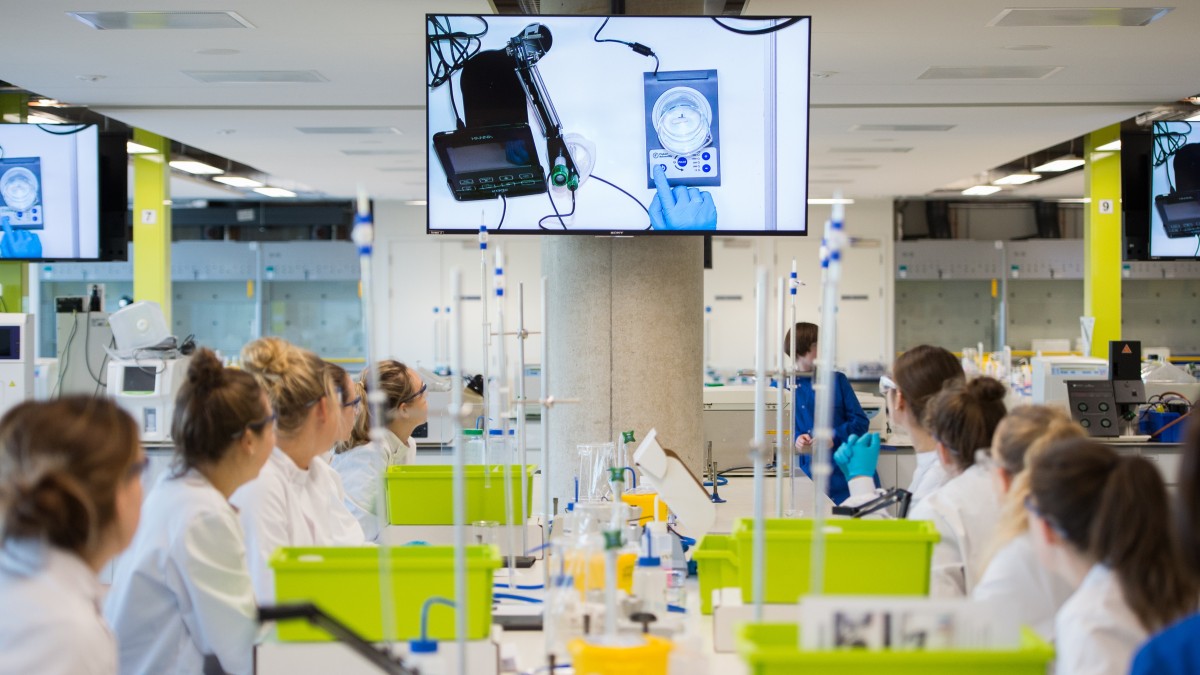
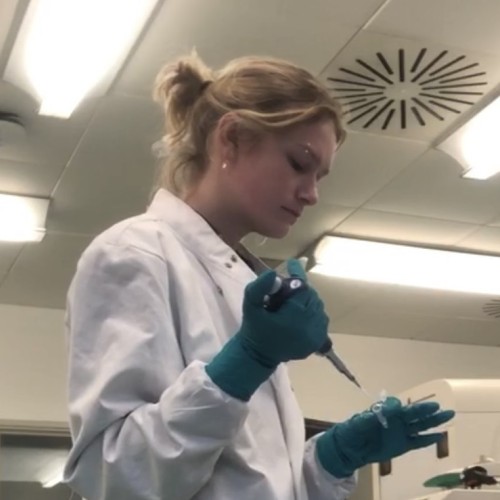
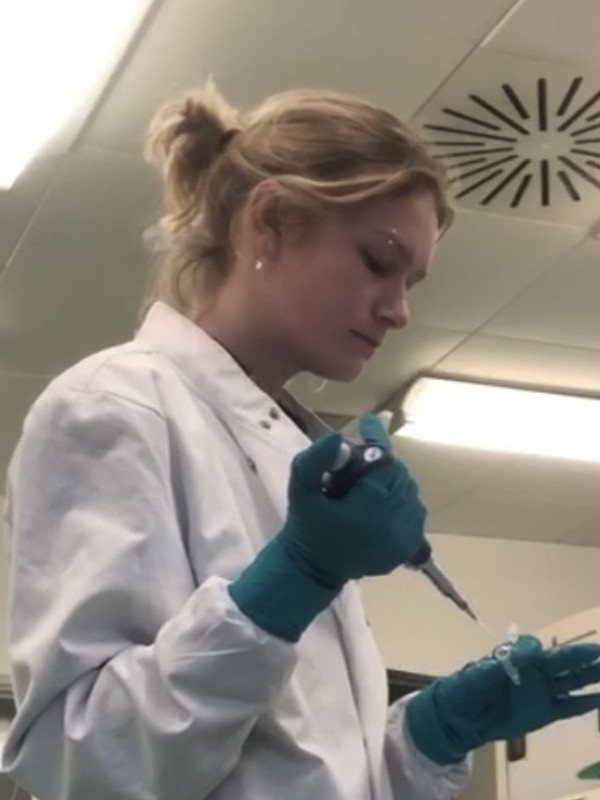
Iysha
Student - Biological Sciences BSc (Hons)

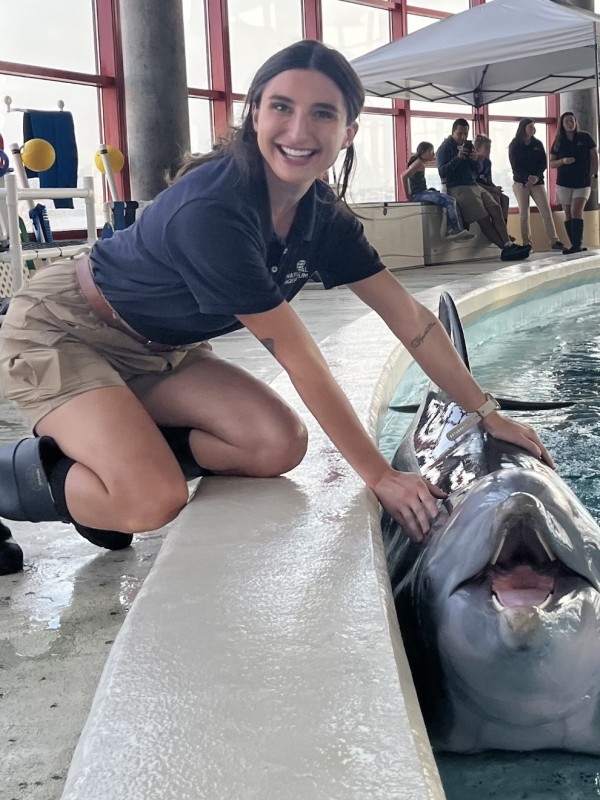
Sophie
Graduate - Biological Sciences BSc (Hons)
Learn more about the qualifications we typically accept to study this course at Surrey.
Typical offer
- BSc (Hons):
- ABB-BBB
- Required subjects: Biology or Chemistry and a second science or mathematics subject.
- BSc (Hons) with foundation year:
- CCC
- Required subjects: a science subject.
A-level General Studies and A-level Critical Thinking are not accepted. Applicants taking the Science Practical Endorsement are expected to pass.
GCSE or equivalent: English Language and Mathematics at grade 4 (C).
- BSc (Hons):
- DDD-DDM in Applied Science.
- BSc (Hons) with foundation year:
- MMM in Applied Science.
Please contact the Admissions team if you are taking other BTECs in a similar subject area.
GCSE or equivalent: English Language and Mathematics at grade 4 (C).
- BSc (Hons):
- 33-32
- Required subjects: Biology or Chemistry HL5/SL6 and a second science or mathematics subject HL5/SL6.
- BSc (Hons) with foundation year:
- 29
- Required subjects: a science subject HL4/SL6.
GCSE or equivalent: English A HL4/SL4 or English B HL5/SL6 and Mathematics (either course) HL4/SL4.
- BSc (Hons):
- 78-75%
- Required subjects: Biology or Chemistry 7.5 and a second science subject or Mathematics (5 period) 7.5.
- BSc (Hons) with foundation year:
- For foundation year equivalencies please contact the Admissions team.
GCSE or equivalent: English Language (1/2) 6 or English Language 3 (7) and Mathematics 6.
- BSc (Hons):
- QAA-recognised Access to Higher Education Diploma with 45 Level 3 credits overall including 30 at Distinction and 15 at Merit - 27 at Distinction and 18 at Merit.
- Required subjects: 15 credits in Biology or Chemistry and 15 credits in another science subject.
- BSc (Hons) with foundation year:
- QAA-recognised Access to Higher Education Diploma with 45 Level 3 credits overall including 21 at Distinction, 3 at Merit and 21 at Pass.
- Required subjects: modules must be in relevant subjects.
GCSE or equivalent: English Language and Mathematics at grade 4 (C).
- BSc (Hons):
- AABBB-ABBBB
- Required subjects: Biology or Chemistry and another science or mathematics subject.
- BSc (Hons) with foundation year:
- BBBCC
- Required subjects: a science subject.
GCSE or equivalent: English Language and Mathematics at grade C (Scottish National 5).
- BSc (Hons):
- ABB-BBB from a combination of the Advanced Skills Baccalaureate Wales and two A-levels.
- Required subjects: A-level Biology or Chemistry and an A-level in another science or mathematics subject.
- BSc (Hons) with foundation year:
- CCC from a combination of the Advanced Skills Baccalaureate Wales and two A-levels.
- Required subjects: an A-level in a science subject.
A-level General Studies and A-level Critical Thinking are not accepted. Applicants taking the Science Practical Endorsement are expected to pass.
GCSE or equivalent: English Language and Mathematics at grade 4 (C).
- BSc (Hons):
- Distinction overall, with minimum C in the Core Component.
- Required subjects: Science.
- BSc (Hons) with foundation year:
- Pass overall, with minimum D in the Core Component.
- Required subjects: Science.
GCSE or equivalent: English Language and Mathematics at grade 4 (C).
Applicants taking the Extended Project Qualification (EPQ) will receive our standard A-level offer for this programme, plus an alternate offer of one A-level grade lower, subject to achieving an A grade in the EPQ. The one grade reduction will not apply to any required subjects.
Applicants can only receive one grade reduction from the published grades, an EPQ grade reduction can’t be applied in addition to other grade reductions made through other schemes such as Contextual Admissions or In2Surrey.
English language requirements
IELTS Academic: 6.5 overall with 6.0 in writing and 5.5 in each other element.
View the other English language qualifications that we accept.
If you do not currently meet the level required for your programme, we offer intensive pre-sessional English language courses, designed to take you to the level of English ability and skill required for your studies here.

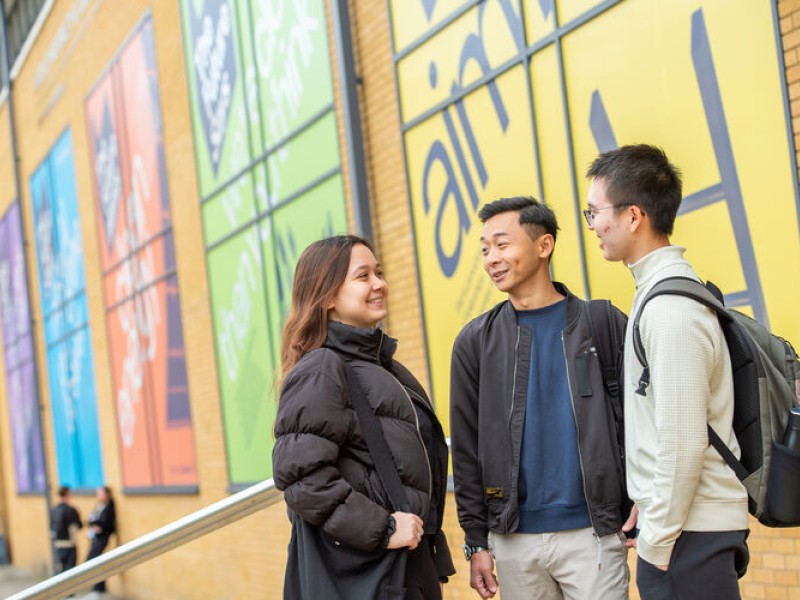
International Foundation Year
If you are an international student and you don’t meet the entry requirements for this degree, we offer the International Foundation Year at the Surrey International Study Centre. Upon successful completion, you can progress to this degree course.
Selection process
We normally make offers in terms of grades.
Recognition of prior learning
View our Code of practice for Recognition of Prior Credit and Prior Learning and further guidance: Credit Transfer and Recognition of Prior Learning - Guide for Applicants (PDF) for more information.
We recognise that many students enter their higher education course with valuable knowledge and skills developed through a range of professional, vocational and community contexts.
If this applies to you, the recognition of prior learning (RPL) process may allow you to join a course without the formal entry requirements or enter your course at a point appropriate to your previous learning and experience. There are restrictions on RPL for some courses and fees may be payable for certain claims.
Contextual offers
Did you know eligible students receive support through their application to Surrey, which could include a grade reduction on offer?
Fees
Explore UKCISA’s website for more information if you are unsure whether you are a UK or overseas student. View the list of fees for all undergraduate courses.
Payment schedule
- Students with Tuition Fee Loan: the Student Loans Company pay fees in line with their schedule.
- Students without a Tuition Fee Loan: pay their fees either in full at the beginning of the programme or in two instalments as follows:
- 50% payable 10 days after the invoice date (expected to be during October to November of each academic year).
- 50% in January of the same academic year.
- The exact date(s) will be on invoices. Students on part-time programmes where fees are paid on a modular basis cannot pay fees by instalment.
- Sponsored students: must provide us with valid sponsorship information that covers the period of study.
Professional training placement fees
Professional Training placement year fees are approximately 20% of the full-time fee for the academic year in which you undertake your placement.
Additional costs
Safety equipment and/or uniform: £24 – equipment pack (includes laboratory coat, laboratory glasses, laboratory books, pen and bag). You are responsible for the costs associated with maintaining/washing/replacing any equipment.
These additional costs are accurate as of September 2025 and apply to the 2026 year of entry. Costs for 2027 entry will be published in September 2026.
Scholarships and bursaries
Discover what scholarships and bursaries are available to support your studies.
Our award-winning Professional Training placement scheme gives you the chance to spend a year in industry, either in the UK or abroad.
We have thousands of placement providers to choose from, most of which offer pay. So, become one of our many students who have had their lives and career choices transformed.
Statistics
Placement Statistics
92%
of students who did a placement entered into graduate level employment*
80%
of placements are paid, with 60% paying between £18,000 - £30,000
48%
of our students have been offered a graduate role from their placement provider**
*Graduate Outcomes 2025, HESA
**Professional training year returners survey 2024
Biological sciences placements
You can choose to work for a range of employers, including pharmaceutical organisations, food suppliers, hospitals and biotechnology companies, to practise and enhance your skills.
Previous students have gained placements in:
- Animal welfare
- Cancer research
- Environmental research
- Genetics
- Microbiology
- Molecular research
- Neuroscience research
- Pharmaceuticals.
We also have an extensive number of partner institutions that offer placements exclusively to Surrey students, giving you access to research laboratories across the world. Explore your options via our search tool and find out more about our current partner universities and organisations.
You can also develop your transferrable skills by working in other fields, such as scientific communications, marketing, and data analysis.
Applying for placements
Students are generally not placed by the University. But we offer support and guidance throughout the process, with access to a vacancy site of placement opportunities.
Find out more about the application process.
Study and work abroad
Studying at Surrey opens a world of opportunity. Take advantage of our study and work abroad partnerships, explore the world, and expand your skills for the graduate job market.
The opportunities abroad vary depending on the course, but options include study exchanges, work/research placements, summer programmes, and recent graduate internships. Financial support is available through various grants and bursaries, as well as Student Finance.
Perhaps you would like to volunteer in India or learn about Brazilian business and culture in São Paulo during your summer holidays? With 140+ opportunities in 36+ different countries worldwide, there is something for everyone. Explore your options via our search tool and find out more about our current partner universities and organisations.
Apply for your chosen course online through UCAS, with the following course and institution codes.
About the University of Surrey
Need more information?
Contact our Admissions team or talk to a current University of Surrey student online.
- BSc (Hons)View UCD10F0005U
- BSc (Hons) with placementView UCD10S0005U
- BSc (Hons) with foundation yearView UCD10F0008U
- BSc (Hons) with foundation year and placementView UCD10S0008U
Terms and conditions
When you accept an offer to study at the University of Surrey, you are agreeing to follow our policies and procedures, student regulations, and terms and conditions.
We provide these terms and conditions at offer stage and are shown again at registration. You will be asked to accept these terms and conditions when you accept the offer made to you.
Disclaimer
This online prospectus has been published in advance of the academic year to which it applies.
Whilst we have done everything possible to ensure this information is accurate, some changes may happen between publishing and the start of the course.
It is important to check this website for any updates before you apply for a course with us. Read our full disclaimer.
